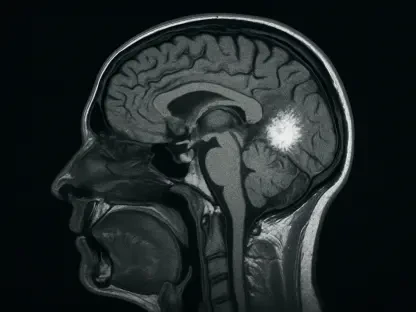Imagine a nation where trust in childhood vaccinations, a cornerstone of public health, begins to waver under the weight of sweeping policy changes proposed by Health Secretary Robert F. Kennedy Jr. His recent proposals to alter the childhood vaccine schedule have ignited a firestorm of debate among experts, policymakers, and public health advocates. This roundup aims to compile and compare diverse opinions, insights, and concerns from multiple stakeholders about these controversial reforms, shedding light on the potential implications for immunization programs and child safety.
Unpacking the Debate: Background on the Proposed Vaccine Reforms
The controversy erupted during a Senate Health, Education, Labor, and Pensions Committee hearing where startling details emerged about Kennedy’s intent to revise the childhood vaccine schedule, particularly for shots against COVID-19 and hepatitis B. Reports suggest that significant internal dissent within the Centers for Disease Control and Prevention (CDC) led to the dismissal of key figures and resignations of senior officials opposed to these changes. This upheaval has set the stage for a broader clash between policy innovation and established scientific norms.
Public health circles are buzzing with concern over the lack of preparatory data to support such alterations. The tension lies in whether these proposed shifts prioritize rapid reform over rigorous evidence, a question that has sharply divided opinions. As this roundup explores various perspectives, the focus remains on understanding how these changes might reshape the landscape of childhood immunization and public trust.
Diverse Voices: Stakeholder Opinions on Vaccine Schedule Changes
Scientific Community Concerns Over Evidence-Based Policy
A significant portion of the scientific community has voiced alarm over allegations that the proposed vaccine guideline revisions lack sufficient data. Former CDC leaders have highlighted during testimonies that pressure to approve new schedules without adequate research undermines the foundation of vaccine safety. Many in this group argue that bypassing thorough review processes could jeopardize the effectiveness of immunization programs.
Supporting this view, several medical associations have emphasized the wealth of existing studies that validate the current childhood vaccine timeline. Their stance is clear: any adjustment must be grounded in robust evidence to avoid unintended health risks. This perspective underscores a deep-seated fear that policy-driven changes could erode decades of progress in controlling preventable diseases.
The broader implication, as raised by health experts, is the potential decline in public confidence if reforms appear ideologically motivated rather than scientifically justified. Such a shift might discourage vaccination uptake, especially in communities already hesitant about immunization. This concern forms a critical thread in the ongoing debate over balancing policy reform with scientific integrity.
Political Perspectives on Vaccination and Choice
On the other side of the spectrum, some political figures advocate for maintaining certain aspects of the current vaccine schedule while emphasizing individual choice. For instance, Senator Bill Cassidy has publicly supported the inclusion of the hepatitis B vaccine in early childhood, citing its proven life-saving benefits. His position also champions the right of parents, particularly mothers, to make informed decisions about their children’s vaccinations.
This viewpoint introduces a nuanced layer to the discussion, suggesting that policy should not only focus on health outcomes but also respect personal autonomy. Proponents of this stance argue that incorporating flexibility into vaccine schedules could address concerns from skeptical communities, potentially increasing overall compliance. This angle highlights a push for a middle ground amid polarized opinions.
However, critics within political spheres caution that prioritizing choice over mandatory guidelines risks fragmenting national immunization efforts. They worry that inconsistent policies across regions could create gaps in herd immunity, leaving vulnerable populations exposed. This tension between individual rights and collective health safety remains a pivotal point of contention in legislative circles.
Public Health Advocates Warn of Long-Term Risks
Public health advocates have emerged as vocal critics of the rapid restructuring of advisory bodies like the CDC’s Advisory Committee on Immunization Practices (ACIP). With Kennedy’s replacement of numerous committee members with individuals skeptical of certain vaccine technologies, many fear that decisions may lean more toward ideology than evidence. The absence of standard preparatory working groups for most vaccine discussions further fuels these apprehensions.
These advocates point to historical data showing spikes in preventable diseases when vaccination rates drop, warning that similar outcomes could resurface if trust in health systems falters. Their primary concern is the ripple effect on regional vaccine confidence, especially in areas with already low immunization rates. This perspective calls for a cautious approach to any schedule modifications.
Additionally, there is a strong push from this group for transparency in how advisory decisions are made. They argue that public access to the data and rationale behind vaccine policies is essential to maintaining trust. Their insights stress the importance of communication and accountability as safeguards against potential public health setbacks.
Insights from the Field: Comparing Differing Approaches
Analyzing the spectrum of opinions reveals a profound divide on how vaccine policy should evolve. On one hand, segments of the scientific and public health communities insist on preserving evidence-based frameworks, warning that deviations could invite health crises. Their emphasis on data-driven decisions contrasts sharply with political voices advocating for flexibility and parental choice in vaccination timelines.
Conversely, the restructuring of advisory panels and the push for swift policy changes reflect a belief among some stakeholders that the current system requires urgent overhaul. This camp argues that adapting schedules to address public skepticism could ultimately strengthen immunization efforts by aligning with community concerns. Yet, the lack of preparatory research for such changes remains a sticking point for many observers.
Bridging these viewpoints, a common thread emerges in the need for dialogue between all parties to ensure that reforms, if necessary, do not compromise child safety. The debate also underscores the importance of public education on vaccine benefits to counter misinformation. These comparative insights highlight the complexity of aligning policy innovation with scientific rigor in a polarized environment.
Reflecting on the Roundup: Key Takeaways and Next Steps
Looking back, this compilation of perspectives illuminated the intense friction surrounding Health Secretary Robert F. Kennedy Jr.’s proposed changes to the childhood vaccine schedule. The divide between maintaining evidence-based standards and pursuing rapid policy shifts stood out as a central theme, with significant input from scientific, political, and public health arenas. Each stakeholder group brought unique concerns and solutions to the table, painting a multifaceted picture of a critical issue.
Moving forward, a practical step could involve establishing independent review panels to assess any proposed vaccine schedule alterations, ensuring decisions rest on solid data. Engaging communities through transparent communication about vaccine safety and benefits might also help rebuild trust where it has waned. For those invested in this debate, staying informed through credible health resources and participating in local discussions can amplify the push for policies grounded in science over speculation.









